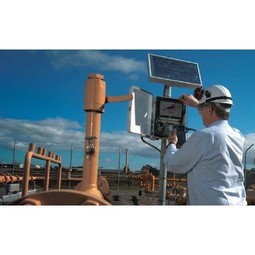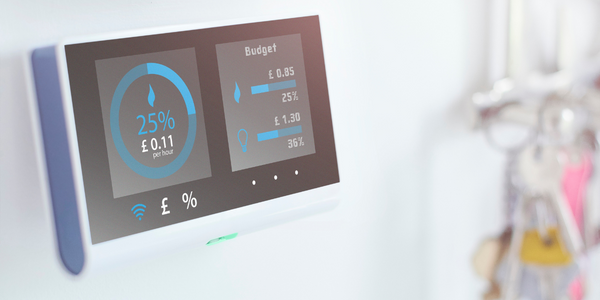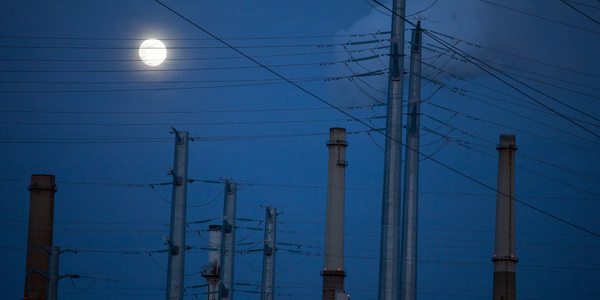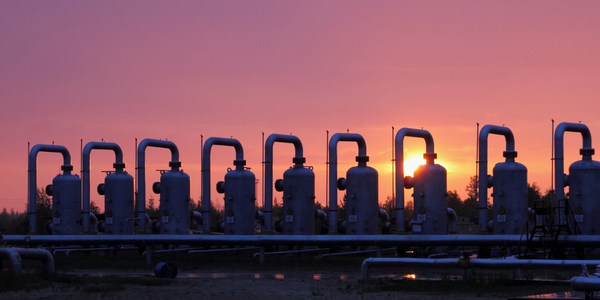下载PDF
Northern Gas Networks uses Absolute to protect £1.4m laptop investment
技术
- 功能应用 - 远程监控系统
- 网络安全和隐私 - 端点安全
适用行业
- 公用事业
适用功能
- 现场服务
- 维护
用例
- 资产健康管理 (AHM)
- 地理围栏
- 远程资产管理
服务
- 系统集成
- 云规划/设计/实施服务
挑战
These expensive laptops were not always returned from the field. Devices would go missing and Northern Gas Networks had no way to determine where they were or who was using them. The company needed to find a cost-effective way to protect these laptops, an investment of almost £1.5 million.
关于客户
Northern Gas Networks is responsible for distributing gas to homes and businesses across the north of England. They provide control, maintenance and repairs for around 37,000km of gas pipes that deliver gas to 26 million customers. Northern Gas Networks must perform ongoing maintenance on the pipeline network to ensure safe and fast gas delivery. The company has a team of gas maintenance managers and engineers that carry out work along the pipeline including onsite support for inspections, repairs and upgrades. Gas engineers use specially ruggedized laptops onsite while performing maintenance work on the pipeline. The laptops allow the engineers to access information such as pipeline coordinates as well as record the data they collect while they’re onsite. Northern Gas Networks has approximately 570 of these laptops at a cost of £2,500 each. Some of the laptops are fixed into maintenance vans, others are portable and can be carried by engineers to access and gather information directly at the point of work. Paul Tate, IT Manager is responsible for managing these devices, keeping them in working order and ensuring they have the proper software installed.
解决方案
Northern Gas Networks upgraded their laptop deployment and purchased devices that had Persistence® technology from Absolute built into the firmware. Tate was intrigued and decided to test the technology. It turned out this was exactly what the company needed, providing the means to track and secure each device regardless of user or location. Tate purchased licences for all new laptops. Now, if a device is lost or stolen, Northern Gas Networks can freeze the laptop and display a message on the screen for the end user asking that they return the device to IT. The number of missing devices has been greatly reduced. And if a laptop is stolen, the Absolute Investigations team initiates an investigation, collects evidence, and works with local police to recover the device. Northern Gas Networks also uses Absolute for proactive endpoint security such as building geofences to contain devices, with an automatic alert triggered if a device strays beyond the company’s operating area in and around North England. In addition, the Absolute Customer Centre – a cloud-based console - provides Tate with access to information from each device such as where it was last tracked and any changes to device hardware and software. Data from each laptop is updated regularly and available in their Customer Centre account, providing Tate with accurate and timely information about the entire deployment.
运营影响
数量效益
相关案例.

Case Study
IoT Solutions for Smart City | Internet of Things Case Study
There were several challenges faced: It is challenging to build an appliance that can withstand a wide range of voltage fluctuations from as low at 90v to as high as 320v. Since the device would be installed in remote locations, its resilience was of paramount importance. The device would have to deal with poor network coverage and have the ability to store and re-transmit data if networks were not available, which is often the case in rural India. The device could store up to 30 days of data.

Case Study
Automation of the Oguz-Gabala-Baku water pipeline, Azerbaijan
The Oguz-Gabala-Baku water pipeline project dates back to plans from the 1970’s. Baku’s growth was historically driven by the booming oil industry and required the import of drinking water from outside of the city. Before the construction of the pipeline, some 60 percent of the city’s households received water for only a few hours daily. After completion of the project, 75 percent of the two million Baku residents are now served around the clock with potable water, based on World Health Organization (WHO) standards. The 262-kilometer pipeline requires no pumping station, but uses the altitude differences between the Caucasian mountains and the capital to supply 432,000 m³/d to the Ceyranbatan water reservoir. To the people of Baku, the pipeline is “the most important project not only in 2010, but of the last 20 years.”

Case Study
GPRS Mobile Network for Smart Metering
Around the world, the electricity supply industry is turning to ‘smart’ meters to lower costs, reduce emissions and improve the management of customer supplies. Smart meters collect detailed consumption information and using this feedback consumers can better understand their energy usage which in turn enables them to modify their consumption to save money and help to cut carbon emissions. A smart meter can be defined in many ways, but generally includes an element of two-way communication between the household meter and the utility provider to efficiently collect detailed energy usage data. Some implementations include consumer feedback beyond the energy bill to include online web data, SMS text messages or an information display in consumers’ premises. Providing a cost-effective, reliable communications mechanism is one of the most challenging aspects of a smart meter implementation. In New Zealand, the utilities have embraced smart metering and designed cost effective ways for it to be implemented. The New Zealand government has encouraged such a move to smart metering by ensuring the energy legislation is consistent with the delivery of benefits to the consumer while allowing innovation in this area. On the ground, AMS is a leader in the deployment of smart metering and associated services. Several of New Zealand’s energy retailers were looking for smart metering services for their residential and small business customers which will eventually account for over 500,000 meters when the multi-year national deployment program is concluded. To respond to these requirements, AMS needed to put together a solution that included data communications between each meter and the central data collection point and the solution proposed by Vodafone satisfied that requirement.

Case Study
NB-IoT connected smart meters to improve gas metering in Shenzhen
Shenzhen Gas has a large fleet of existing gas meters, which are installed in a variety of hard to reach locations, such as indoors and underground, meaning that existing communications networks have struggled to maintain connectivity with all meters. The meter success rate is low, data transmissions are so far unstable and power consumption is too high. Against this background, Shenzhen Gas, China Telecom, Huawei, and Goldcard have jointly trialed NB-IoT gas meters to try and solve some of the challenges that the industry faces with today’s smart gas meters.

Case Study
OneWireless Enabled Performance Guarantee Test
Tata Power's power generation equipment OEMs (M/s BHEL) is required to provide all of the instrumentation and measurement devices for conducting performance guarantee and performance evaluation tests. M/s BHEL faced a number of specific challenges in conducting PG tests: employing high-accuracy digital communications for instrumentation, shortening setup and dismantling time, reducing hardware required, making portable instrument setup, avoiding temporary cabling work and the material waste costs

Case Study
British Gas Modernizes its Operations with Innovative Smart Metering Deployment
The UK government has mandated that smart meters are rolled out as standard across Great Britain by end of 2020, and this roll-out is estimated to create £14 billion in net benefits to the UK in consumer energy savings and lower energy generation demand, according to the Oxford Economics report, “The Value of Smart Metering to Great Britain.” While smart-metering systems have been deployed in many countries, the roll-out in Great Britain is unique because it is led by energy retailers, who have responsibility for the Electricity and Gas meters. The decision to have a retailer-led roll out was made by DECC (Department of Energy and Climate Change) to improve customer experience and drive consumer benefits. It has also led to some unique system-level requirements to support the unique local regulatory model.




